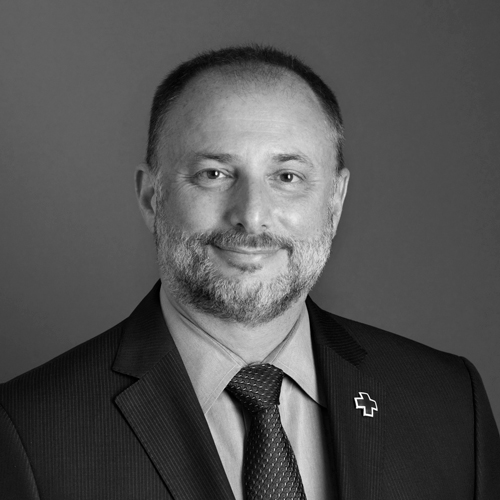At 16 years old, Hiro Tachibana did not want to spend the rest of his schooling memorizing facts. He wanted to be a lifelong learner. That became his inspiration to move to the United States from Japan, and it started a series of coincidences that would take him all the way to Capcom.
Although typical Japanese schools focus their curricula on test preparation, all Kobe Japanese High School freshmen were required to read Freedom and Discipline, by K. Ikeda. The book tells the story of a Japanese student’s experience at a United Kingdom boarding school. “The book planted a seed in my mind that there was a different way of learning and student lifestyle,” says Tachibana, who read the story at the height of the Vietnam War in 1969 amid student riots and protests. His older brother was encouraged to study abroad, and he told Tachibana about the American education system. “That is when my desire to go abroad and study became even more intense,” he recalls.
Milestones and Mentors
Reflecting on his legal career, Tachibana says he’s blessed to have had the opportunity to work with leading mentors and entrepreneurs. “Business is not exciting in itself,” says Tachibana. “It’s the specific things that a company does that are exciting.” Tachibana is excited to have pioneered in interactive television at Diego, led the industry in semiconductor design licensing at MIPS, and now to provide leading interactive entertainment through video games at Capcom. “I feel fortunate to have been able to pursue my passion with my legal skills. This practice brings me back to being a lifelong learner.”
September 1978
After graduating from Yale with bachelor’s and master’s degrees in applied mathematics, Tachibana is accepted to the University of California Hastings College of the Law. His mother nudges him to switch from a career in math and science to one in law. “I didn’t think law was a good thing for me, but after having done this for 30-plus years, I thank my mom every day for suggesting this career,” says Tachibana. “She passed away 13 years ago, but there isn’t a morning that goes by that I don’t think about her.”
August 1986
Tachibana works in tax law after graduating from New York University School of Law with a master of laws degree in taxation. Fujitsu America general counsel Tom Duffy decides to take a chance on Tachibana. Duffy, who went on to become Fujitsu’s global chief legal officer, guides Tachibana through the nuances of commercial law. “One mundane example was knowing how to draft commercial and licensing documents,” says Tachibana. “I’d always invariably ask him what template or precedent I should look for. He always smiled and said, ‘You have to think what needs to go into the agreement. Just don’t start out with a template. You have to think what parameters the agreement needs before drafting.’” With Duffy’s guidance, Tachibana became very involved with joint ventures and acquisitions.
August 1989
Tachibana leaves Fujitsu for MIPS Computer Systems, a pioneer in microprocessor technology, cofounded by Stanford professor John L. Hennessy, who became President of Stanford. Tachibana reports to then-general counsel Joseph Sweeney, who guides him in licensing computer and microprocessor technology.
December 1991
Tachibana joins Fenwick & West. He expands the leading Silicon Valley law firm’s Japan practice. Tachibana climbs the ranks to make partner, thanking four people for that accomplishment: the late Henry West, Gordon Davidson, David Hayes, and Mark Stevens, all leading Silicon Valley lawyers. With a large international practice, Henry West taught Tachibana how to effectively work with major Japanese clients.
January 2000
Tachibana moves forward in his career as general counsel for Digeo, an interactive television technology provider founded by Microsoft cofounder Paul Allen. Tachibana is reunited with CEO James Billmaier, who worked with him at MIPS. “Digeo was an eye-opening experience because I had the opportunity to work with Paul Allen and his empire and gained great experience in working with a storied technology visionary,” says Tachibana.
May 2010
Tachibana joins Japan-based video game company Capcom. Though its parent company is headquartered in the Osaka-Kansai region of Tachibana’s roots, he joins its Silicon Valley office. Video games are the synthesis of leading-edge hardware and software technology combined with graphic art and literary and musical creation. At Capcom, Tachibana pursues his creative passion in the convergence of law, technology, and liberal arts. “If you strip down everything we do at Capcom, the core of our business is the commercialization of intellectual property rights,” says Tachibana. He looks up to Capcom’s founder and CEO Kenzo Tsujimoto, a leading global entrepreneur who, he says, understands what it means to build and run a thriving company that can withstand the test of time.
Around the same time, the headmaster of Suffield Academy in Suffield, Connecticut, sent a letter to Tachibana’s school asking if anyone would be interested in studying abroad. Despite his mother’s worries about him living abroad, Tachibana was one of several students who applied and was accepted to the American school. He took his admittance as a sign that he had to go. “That letter fell down from heaven,” says Tachibana. “My two years at Suffield shaped my life in a lasting and profound manner.”
When Tachibana first arrived at Suffield, he was not able to speak English well. By the time he left, he had become fluent and had mastered the ability to take courses in the language. “What saved me was the good math education I had in Japan,” says Tachibana. “For all the faults of the Japanese education system, it did have much stronger methods of teaching math and science, resulting in more advanced coursework.” So even though he had a difficult time studying English literature and US history, and classroom discussions were fuzzy, Tachibana knew the substance. “That was my foundation for becoming a good student at Suffield.”
Tachibana fully immersed himself in the American high school experience. In two years, he made friends that he still keeps in touch with today. His tenacious attitude, perseverance, and persistence to pursue a different type of education provided the foundation for his life, both professionally and personally. This philosophy is something he has handed down to his own children. “I was a rebel in the pursuit of education,” he says, “and I want my children to be the same.”


